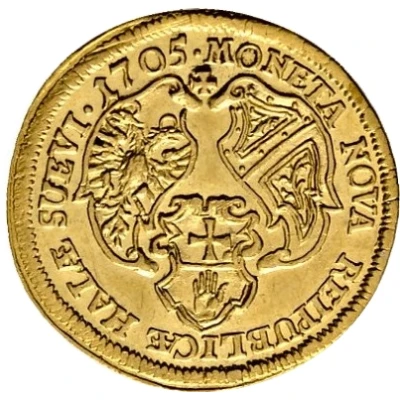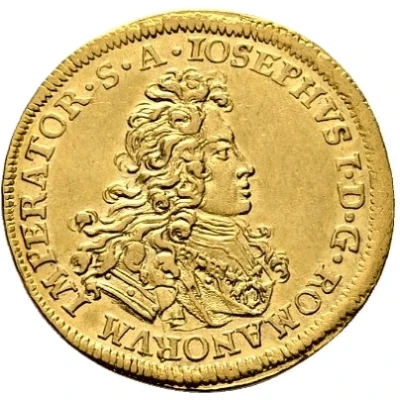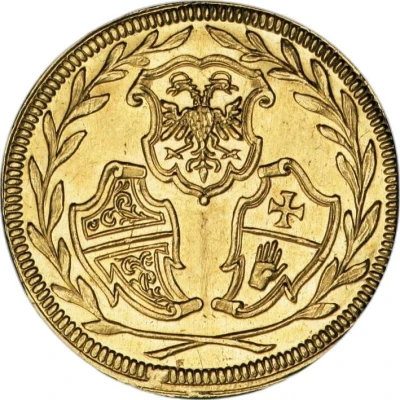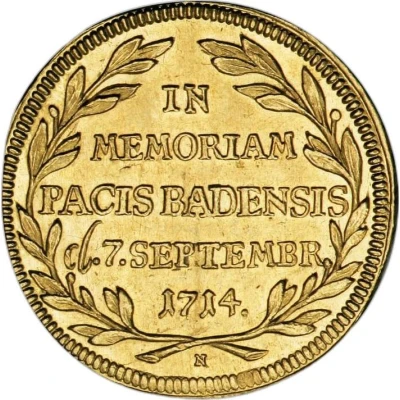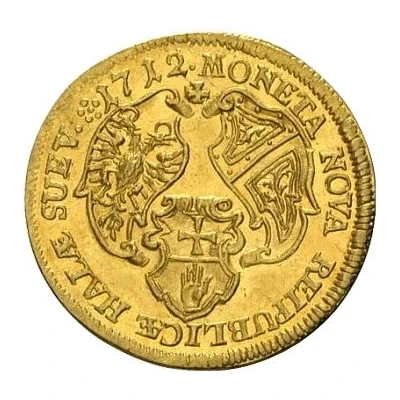
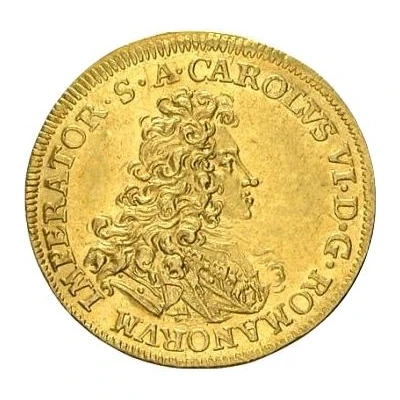

© Münzen & Medaillen GmbH
1 Ducat
1712 year| Gold (.986) | 3.50 g | 22 mm |
| Issuer | City of Schwäbisch Hall (German States) |
|---|---|
| Period | Free city |
| Emperor | Charles VI (Karl VI) (1711-1740) |
| Type | Standard circulation coin |
| Year | 1712 |
| Value | 1 Ducat (3.5) |
| Currency | Thaler |
| Composition | Gold (.986) |
| Weight | 3.50 g |
| Diameter | 22 mm |
| Shape | Round |
| Technique | Milled |
| Demonetized | Yes |
| Updated | 2024-10-05 |
| Numista | N#301747 |
|---|---|
| Rarity index | 97% |
Reverse
Armored bust facing right.
Script: Latin
Interesting fact
One interesting fact about the 1712 Schwäbisch Hall 1 Ducat coin is that it features a unique design element - a small hole in the center of the coin. This hole was intentionally drilled into the coin as a way to test its authenticity. At the time, counterfeiters were known to produce coins with a similar weight and appearance to the genuine article, but they often lacked the detailed craftsmanship and precision of authentic coins. The hole in the 1712 Schwäbisch Hall 1 Ducat coin made it difficult for counterfeiters to reproduce, as it required a high level of skill and precision to drill such a small hole without damaging the surrounding metal. This feature, along with the coin's gold content and intricate design, made it a highly trusted and sought-after coin among collectors and merchants.
